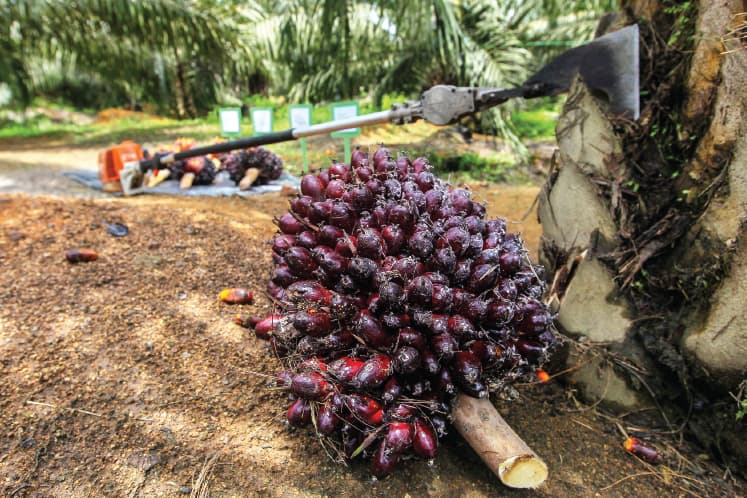
KUALA LUMPUR (May 1): Demand for palm oil is expected to decline this year, as contractions seen in the global economy will ultimately be a heavy blow to the commodity.
On a webinar hosted by the Solvent Extractors Association of India (SEA), Godrej International Ltd director Dorab Mistry noted that demand for the edible oil is expected to drop in the major markets such as China and India, as well as in other developing countries.
He noted that India’s monthly import of edible oils is expected to fall by two million tonnes — with almost all being palm oil.
“This story will be repeated in most of the developing world, as consumers become more conscious in terms of their spending,” he said.
Chinese imports of palm oil are expected to shrink too, as the country uses its reserves of soybeans.
He noted that the palm oil market has already factored in reduced bio-diesel demand following the recent crash in crude oil prices, but not the economic fallout caused by the Covid-19 outbreak worldwide, which will have a significant impact on consumer spending.
In terms of production, Mistry noted there will be an improvement in palm oil production in the second half of the year (2H2020), as a dramatic improvement in rainfall in Southeast Asia over the past six months has helped combat the impact of earlier El Niño conditions regionally.
The higher crude palm oil prices also lead to greater fertilisation deployment, which will ultimately aid in production.
That said, he noted that “cruel prices" (prices being bogged down) are yet to unfold after Ramadhan when production begins to pick up.
“In these conditions, the price outlook [for palm oil] is not favourable. In bear markets, commodity prices tend to move towards the cost of production,” he said.
That said, if Indonesia can fulfil its bio-diesel mandate, prices should be around RM2,100 to RM2,200 range. If not, prices will be under pressure.
Additionally, a recovery in Brent crude prices will act as a support for palm oil, but only until June as “palm oil has its own fundamentals”.
TransGraph Consulting managing director Nagaraj Meda noted that palm oil stocks in Malaysia are now expected to dip slightly to 2.37 million tonnes, from 2.38 million tonnes initially forecasted prior to the escalation of the economic impact of Covid-19.
Bursa Malaysia listed futures contracts for delivery in June rose RM56 to RM2,079.
Indian demand expected to evaporate
Sunvin Group chief executive officer Sandeep Bajoria said palm oil demand has suffered in India, while soy and sunflower oil remained steady.
This is as only 40% of the demand from palm oil stems from households, with the balance being from restaurant and conference (HoReCa) segment and food production segment — which have been adversely impacted by the slowdown in international travel and lockdowns initiated by governments worldwide, as well as in India.
Gemini Edibles & Fats India Pvt Ltd managing director Pradeep Choudhary noted there is no mobility between oils among Indian household consumers, as other vegetable oils such as sunflower oil — which maintain a premium against palm oil — are seeing greater demand.
“Price elasticity only works at the HoReCa level, where people tend to switch between oils,” said Pradeep.
That being said, household demand for palm oil could grow, while commercial biscuit manufacturing is expected to be stable.
He noted that in India alone there has been a 40% destruction in palm oil demand, mainly lead by the HoReCa segment. Meanwhile, demand for soy and sunflower oils has risen by 10%.